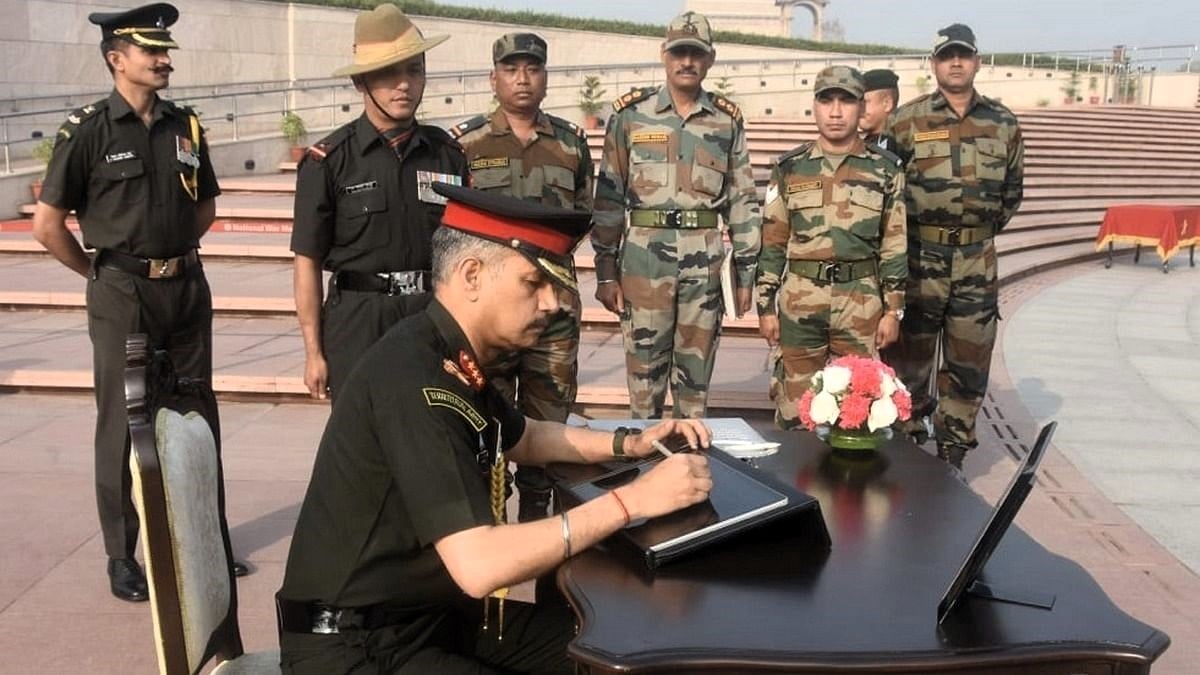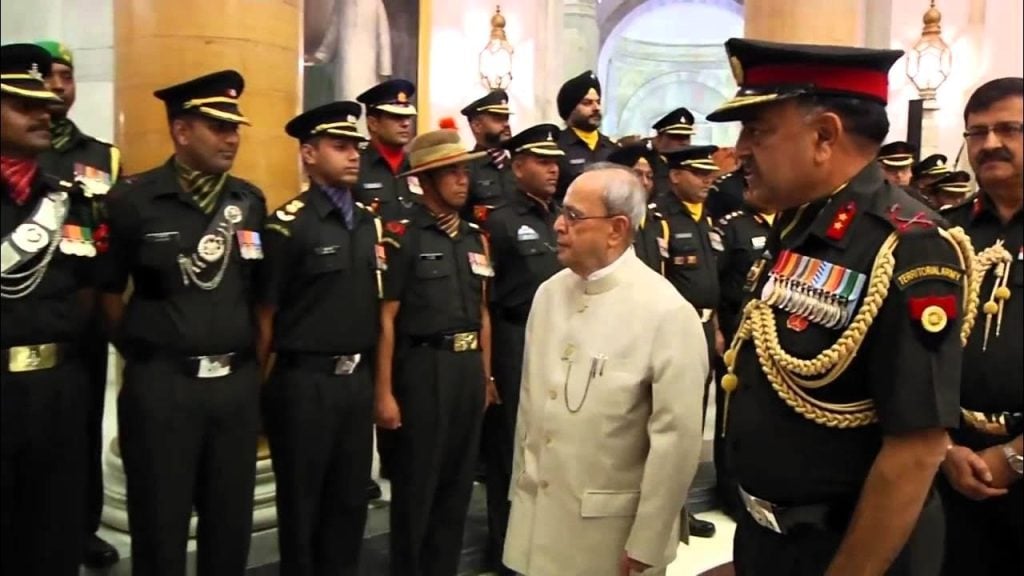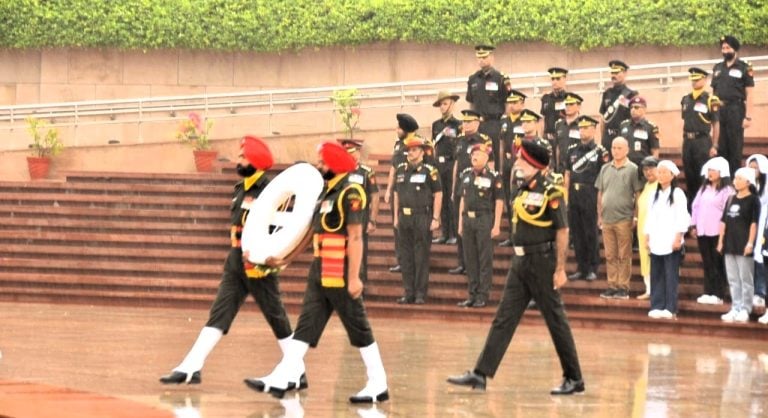Preparing for the Territorial Army can be a rewarding yet challenging journey. This comprehensive guide is designed to equip candidates with essential strategies, tips, and insights to effectively navigate the preparation process for the Territorial Army in 2024. From understanding the exam pattern to mastering subject-specific strategies, this article will serve as your roadmap to success.
The Territorial Army (TA) serves as a vital component of India’s defense forces, allowing civilians to contribute to national security while pursuing their professional careers. Unlike regular army personnel, members of the TA are part-time soldiers who train and serve as needed. To join, candidates must undergo a selection process that includes a written examination, a personal interview, and a medical evaluation.
Also Read | Territorial Army Salary , Pay Scale, Benefits and Allowances 2024
Importance of Preparation
Effective preparation is crucial for success in the Territorial Army recruitment process. A well-structured study plan not only enhances knowledge but also boosts confidence. Candidates who prepare systematically are more likely to excel in the written exam and subsequent selection stages.
Key Benefits of Joining the Territorial Army
- Serve the Nation: Contribute to national security while maintaining a civilian career.
- Skill Development: Gain valuable skills in leadership, teamwork, and discipline.
- Financial Incentives: Enjoy competitive pay and benefits.
- Networking Opportunities: Connect with like-minded individuals from diverse backgrounds.
Exam Pattern Overview
Understanding the exam pattern is the first step in effective preparation. The Territorial Army written exam consists of two papers, each designed to assess different skill sets.
Paper I: Reasoning and Elementary Mathematics
- Duration: 2 hours
- Total Questions: 100
- Subjects Covered:
- Reasoning
- Elementary Mathematics
Paper II: General Knowledge and English
- Duration: 2 hours
- Total Questions: 100
- Subjects Covered:
- General Knowledge
- English Language
Scoring System
Each question carries equal marks, and there is no negative marking. Candidates must pass both papers to qualify for the next stages of the selection process.
Creating a Study Plan
A well-structured study plan is essential for effective preparation. Here’s how to create one:
Assess Your Current Knowledge
Start by evaluating your strengths and weaknesses in each subject. This self-assessment will help you allocate time effectively.
Set Realistic Goals
Break down your preparation into manageable goals. For example, aim to cover specific topics each week.
Allocate Study Time
Designate specific hours each day for study. Consistency is key, so try to stick to your schedule.
Include Breaks
Incorporate short breaks to avoid burnout. A well-rested mind retains information better.
Mastering the Syllabus
A thorough understanding of the syllabus is crucial for effective preparation. Here’s a breakdown of the syllabus for each paper:
Paper I: Detailed Syllabus
- Reasoning:
- Verbal and Non-Verbal Reasoning
- Analytical Reasoning
- Logical Deduction
- Elementary Mathematics:
- Arithmetic
- Algebra
- Geometry
- Mensuration
Paper II: Detailed Syllabus
- General Knowledge:
- Current Affairs
- History
- Geography
- Indian Polity
- English:
- Grammar
- Vocabulary
- Comprehension
- Composition
Utilizing Previous Year Papers
Previous year question papers are invaluable resources for preparation. Here’s how to make the most of them:
Identify Patterns
Analyzing past papers can help identify frequently asked questions and topics. This will guide your study focus.
Time Management Practice
Simulate exam conditions by timing yourself while solving previous papers. This will enhance your time management skills.
Self-Assessment
After attempting previous papers, review your answers critically. Identify areas that need improvement.
Also Read | Territorial Army Recruitment 2024, TA Bharti Rally for 3100+ Vacancies for Soldiers
Subject-Specific Preparation Strategies
Each subject requires unique strategies for effective preparation.
Reasoning Preparation Tips
- Practice Daily: Regular practice enhances problem-solving speed and accuracy.
- Use Study Guides: Invest in quality study materials that explain concepts clearly.
- Mock Tests: Take online mock tests to gauge your understanding and improve.
Mathematics Preparation Tips
- Conceptual Clarity: Focus on understanding concepts rather than rote memorization.
- Shortcut Techniques: Learn shortcuts for faster calculations.
- Practice Problems: Solve a variety of problems to build confidence.
General Knowledge Preparation Tips
- Stay Updated: Read newspapers and current affairs magazines daily.
- Use Flashcards: Create flashcards for important dates and events.
- Group Discussions: Engage in discussions with peers to reinforce learning.
English Preparation Tips
- Read Widely: Read newspapers, novels, and essays to improve comprehension and vocabulary.
- Grammar Practice: Regularly practice grammar exercises to strengthen your foundation.
- Writing Practice: Write essays and summaries to enhance your writing skills.
Time Management Techniques
Effective time management is crucial during exam preparation. Here are some techniques to consider:
Prioritize Tasks
Identify high-priority tasks and allocate time accordingly. Focus on subjects that require more attention.
Use a Timer
Set a timer for each study session to maintain focus. The Pomodoro technique (25 minutes of work followed by a 5-minute break) can be effective.
Review Regularly
Set aside time each week to review what you’ve learned. This reinforces knowledge and aids retention.
Staying Motivated
Maintaining motivation is essential throughout your preparation journey. Here are some strategies to stay inspired:
Set Milestones
Establish short-term and long-term goals. Celebrate achievements to boost morale.
Visualize Success
Imagine yourself succeeding in the exam. Visualization can enhance motivation and confidence.
Join Study Groups
Collaborate with peers. Sharing knowledge and experiences can be motivating.
Health and Well-Being
Physical and mental well-being significantly impacts exam preparation. Here’s how to take care of yourself:
Regular Exercise
Engage in physical activities such as jogging, yoga, or sports. Exercise helps reduce stress and improves focus.
Healthy Diet
Maintain a balanced diet rich in fruits, vegetables, and whole grains. Proper nutrition supports cognitive functions.
Mindfulness Practices
Incorporate mindfulness techniques such as meditation or deep breathing exercises to manage stress.
Final Preparations
As the exam date approaches, focus on final preparations. Here’s a checklist:
Revise Key Concepts
Go through important topics and formulas. Focus on areas where you feel less confident.
Mock Tests
Take full-length mock tests under timed conditions to simulate the exam experience.
Rest Well
Ensure you get adequate sleep, especially in the days leading up to the exam. A well-rested mind performs better.
Also Read | Territorial Army Syllabus, Exam Pattern Paper 1 And 2
Conclusion
Preparing for the Territorial Army requires dedication, strategy, and resilience. By understanding the exam pattern, mastering the syllabus, and maintaining a healthy balance between study and well-being, candidates can enhance their chances of success. Embrace the journey with determination and commitment, and you will be well on your way to achieving your goal of joining the Territorial Army in 2024.
FAQs
1. How do I prepare for Territorial Army?
For the Territorial Army exam, candidates should be well-prepared for Logical Reasoning questions, as they will be at the graduation level, requiring a strong understanding of fundamental concepts. Additionally, the Elementary Maths section will follow the Class 10 syllabus, so a good grasp of basic mathematical topics is essential.
2. Is the TA exam difficult?
The math questions will be of Class 10th difficulty, while the reasoning, general knowledge, and English language sections will match the level of a graduate. The exam will consist of 200 questions, with each correct response earning 1 mark.
3. Is Territorial Army a good job?
In addition to financial benefits, serving in the Territorial Army offers officers the chance to serve their nation, enhance leadership abilities, and achieve personal growth.
4. How many months training in Territorial Army?
A two-month Annual Training Camp is conducted each year, including the first year (if applicable).
13. Terms and Conditions of Service:
(a) The Territorial Army operates on a part-time basis, requiring mandatory two months of training annually, and does not offer a full-time career.
5. How many attempts are there for Territorial Army?
There is no restriction on the number of attempts for the Territorial Army examination. However, candidates must still fulfill all other eligibility requirements, such as those related to age, education, and nationality.












